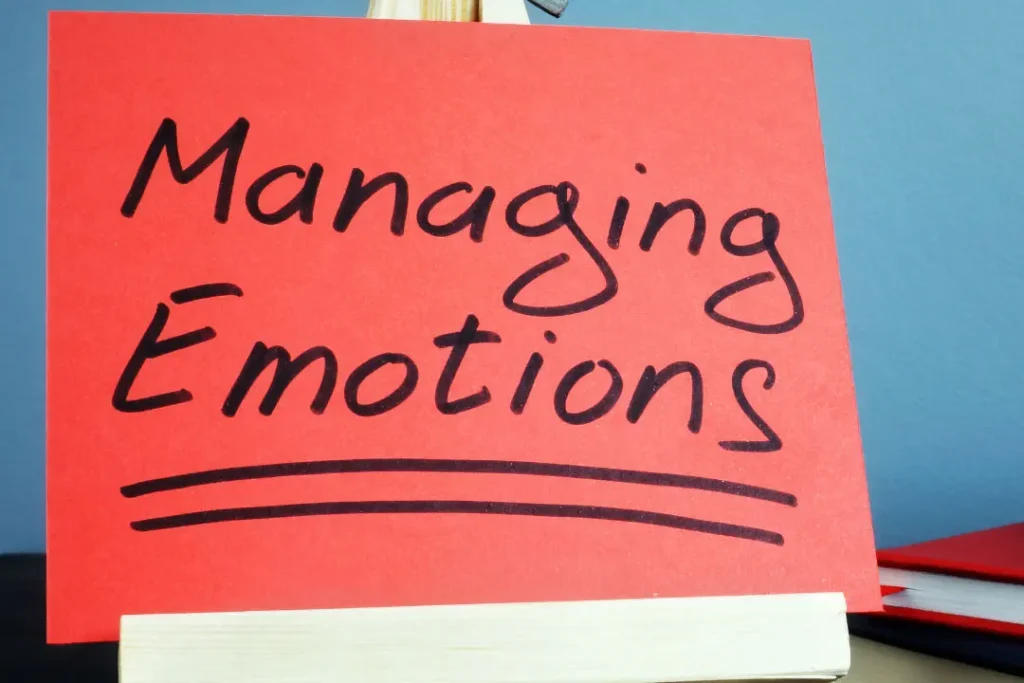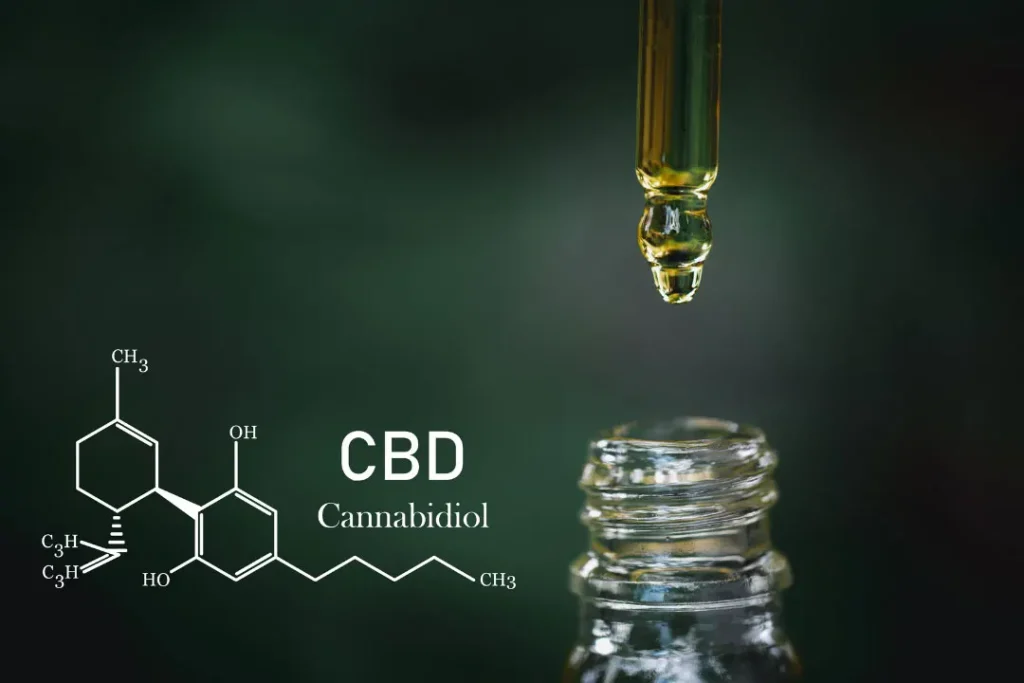Today, CBD is being used as a treatment for all manner of ailments, including depression. But for a condition affecting over 20 million Americans, could cannabidiol be the cure? In this article, we discuss the science behind CBD oil for depression, and whether it’s making new strides towards a healthier mind or is just another fad.
Depression is the most common mental health condition. In any given year, it affects almost 10% of Americans. While the general belief is that chemical imbalances cause depression, there is more to it than that. Depression can occur due to complex interactions from many risk factors that cause changes in the size and shape of the brain. The prevalence and impact of the disease have led to the development of many successful treatments. However, statistics indicate a high percentage of people with depression continue to suffer from ineffective treatment plans. Luckily, there is emerging evidence that CBD oil for depression may be an effective treatment.
You May Also Like:
Luna Sleep Aid vs BrainLuxury DELTA
Santa Cruz Deep Sleep Caps vs. DELTA BrainLuxury
CBD Oil for Depression: A Promising Solution or Just a Fad? is an original (BioHackingNews&Trends) article.
Depression changes the brain
Modern technology has improved our understanding of depression, revealing that this mental illness can affect the size and shape of many parts of the brain. These physical changes interfere with normal brain function and alter how these parts communicate with one another.
Through advanced imaging techniques, clinical science has established that depression can cause the frontal lobe, parietal lobe, thalamus, hippocampus, and basal ganglia to decrease in size. Since these areas are important for the control of emotions, memory, arousal, and decision-making, these effects can be severe.
Furthermore, depression can cause the amygdala to increase in size. Responsible for emotional regulation, this growth can trigger anger, sorrow, and fear. Based on these changes, research concerning CBD oil for depression focuses on how this compound may therapeutically regulate brain function.

What triggers a depressive episode
Adding to the complexity of the illness, depression has no singular cause. On the contrary, a depressive episode can occur for numerous reasons. It can be the result of stressful life events like a divorce or loss of employment. An injury or medical diagnosis that is potentially fatal may cause depression. Loneliness, pregnancy, and a family history of depression are other potential causes.
Furthermore, different circumstances can coincide to cause depression. For example, if you are coping with money problems and a loved one dies, these factors can combine to trigger a depressive episode. Certain coping methods can also increase the likelihood of a depressive episode. Alcohol consumption is a well-established method for forgetting about painful problems. However, alcohol is a depressant, meaning it may make your depression worse.

Defining features of depression
While depression is universally known to cause sadness, there are many other symptoms. Ranging in severity from mild to severe, depression can cause psychological symptoms such as loss of motivation, irritability, anxiousness, guilt, and hopelessness.
Physical symptoms exist and include unexplained pain, sleep disruption, and weight changes. Social symptoms include withdrawal from social situations, disengagement from hobbies, and disruptions in home and work life.
These symptoms can be debilitating. Therefore, exploring alternative solutions like CBD oil for depression is imperative.
CBD Oil for Depression: A Promising Solution or Just a Fad? is the (BioHackingNews&Trends) report.

Effective depression management
The impact and prevalence of depression have led to the development of many different forms of treatment. While the most effective treatment will depend on the type and severity of the depression, treatment options include talk therapy, medications, brain stimulation, and illness education. Recently, growing evidence supports the importance of leading a healthy lifestyle to manage depression. Specifically, exercise and diet changes are important to control the symptoms of depression.

CBD oil for depression:
An alternative treatment
Today it seems CBD oil is used everywhere for everything, but CBD oil for depression is not merely a placebo. With its neuroprotective, antipsychotic, anxiolytic, and anti-inflammatory properties, the extensive use of CBD oil is understandable.
There is emerging scientific evidence that CBD oil can be an effective treatment for depression in conjunction with other treatment methods. Since it alters serotonin levels in the body, CBD oil is comparable to other antidepressant medications. Although more research is needed, studies to date report that CBD oil may help to improve depressive symptoms and positively impact cognition. In animal studies, the administration of CBD “minimizes anxiety, depression, and stress-related behaviors.” However, “larger animal and human studies” are needed to determine “the usefulness, safety, and efficacy of CBD” in treating depression.
Joy Organics, a superior CBD oil for depression
When it comes to selecting a CBD oil for depression, there is no shortage of commercially-available options. Joy Organics takes the guesswork out of the decision-making process. With a personal connection to CBD products, co-founder Joy Smith’s goal is “to help as many people as she can” by creating high-quality wellness products. The Unflavored Organic Broad Spectrum CBD Tincture is made from only two ingredients: organic olive oil and organic broad spectrum CBD. It’s designed to promote calmness and melt away stress and may help to combat depression in combination with other treatments.
Joy Organics produces the highest-quality CBD oil by using a strict six-step processing method that has earned the company an “A” rating on the hemp scorecard by the Center for Food Safety. Joy Organics‘ CBD products are certified by an independent third-party lab to contain 0% THC. Additionally, the company fully discloses its testing results to consumers.
CBD oil for depression:
A complementary treatment option
With reports that a staggering 30% of people with depression are unresponsive to conventional treatment methods, CBD oil for depression should be considered a viable option to complement other treatments. Broad spectrum cannabinoids have been shown to increase serotonin levels, known as the “feel good” neurotransmitter. Best of all, unlike other antidepressant medications, CBD oil has minimal side effects. If you are considering trying CBD oil for depression, be sure to check with your healthcare provider since CBD oil may interact with other medications.
For Further Information:
National Institute of Mental Health: Major Depression
National Center of Biotechnology Information: Brain structure alterations in depression: Psychoradiological evidence
Harvard Health: What causes depression?
National Center of Biotechnology Information: The Impact of Cannabidiol on Human Brain Function: A Systematic Review
American Psychological Association: What is Cognitive Behavioral Therapy?
Important Note: The information contained in this article (CBD Oil for Depression: A Promising Solution or Just a Fad?) is for general informational purposes only, and should not be construed as health or medical advice, nor is it intended to diagnose, prevent, treat, or cure any disease or health condition. Before embarking on any diet, fitness regimen, or program of nutritional supplementation, it is advisable to consult your healthcare professional in order to determine its safety and probable efficacy in terms of your individual state of health.
Regarding Nutritional Supplements Or Other Non-Prescription Health Products: If any nutritional supplements or other non-prescription health products are mentioned in the foregoing article, any claims or statements made about them have not been evaluated by the U.S. Food and Drug Administration, and such nutritional supplements or other health products are not intended to diagnose, treat, cure, or prevent any disease.